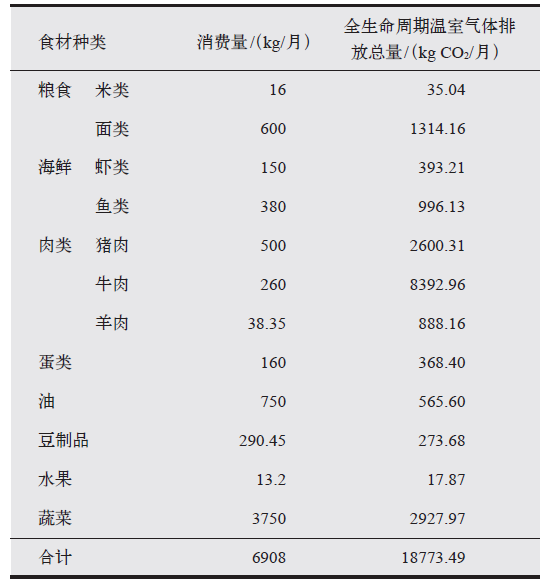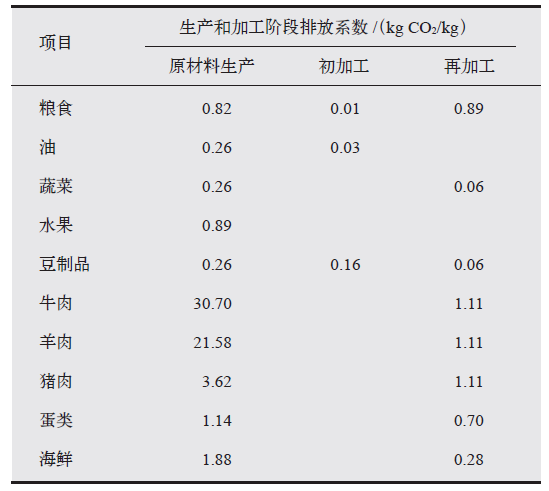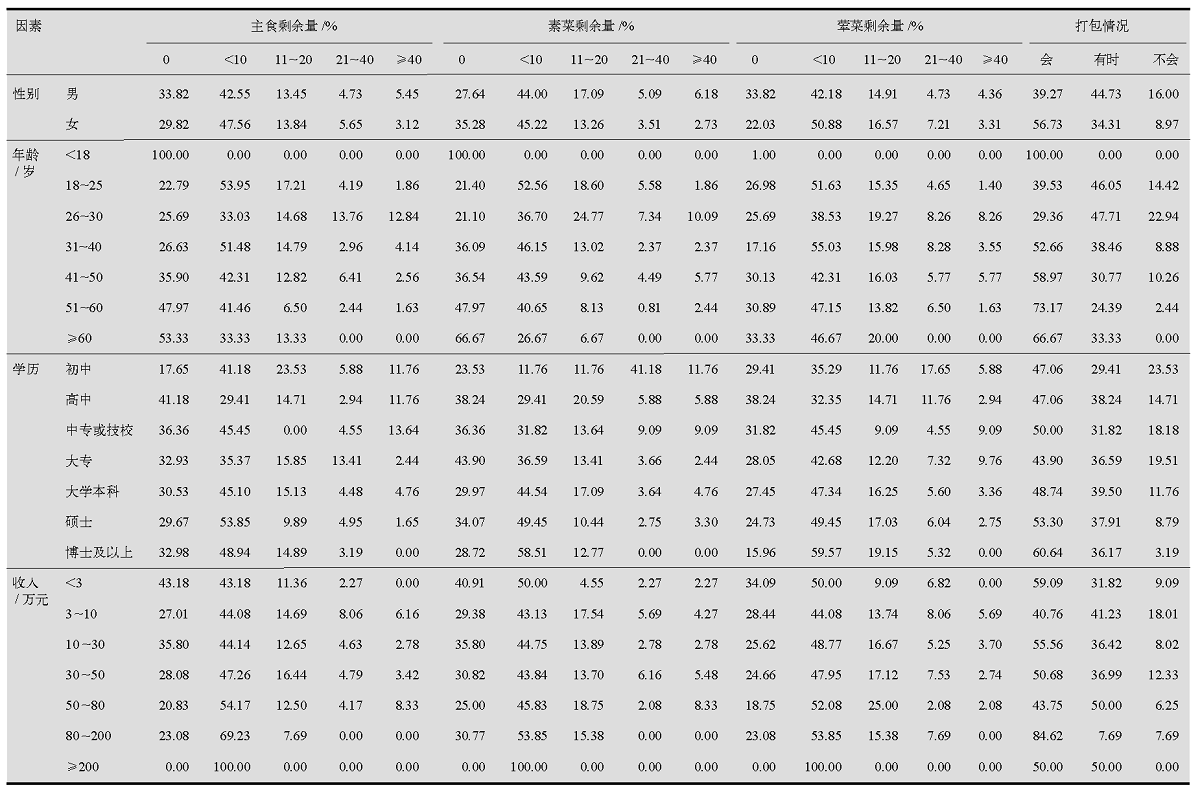| [1] |
人民日报. 我国粮食生产连年丰收,为何还始终要有危机意识?专家告诉你原因[N/OL]. 人民日报, 2020 [2020-09-07]. https://baijiahao.baidu.com/s?id=1674807232468706293&wfr=spider&for=pc.
|
|
People’s daily. Why should we always have a sense of crisis when China’s grain production has been bumper year after year? Experts tell you why [N/OL]. People’s Daily. 2020 [2020-09-07]. https://baijiahao.baidu.com/s?id=1674807232468706293&wfr=spider&for=pc (in Chinese)
|
| [2] |
世界自然基金会, 中国科学院地理科学与资源研究所. 2018中国城市餐饮食物浪费报告[R/OL]. 2018 [2020-09-07]. http://www.wwfchina.org/news-detail?type=3&id=1810.
|
|
WWF, Institute of Geographical Sciences and Resources, Chinese Academy of Sciences. Report on food waste in urban restaurants in China in 2018 [R/OL]. 2018 [2020-09-07]. http://www.wwfchina.org/news-detail?type=3&id=1810 (in Chinese)
|
| [3] |
刘彦平, 吕烨, 骆再晨. 我国城市居民食物浪费问题研究[J]. 江苏科技信息, 2020, 37(6):67-72.
|
|
Liu Y P, Lv Y, Luo Z C. Research on food waste of urban residents in China[J]. Jiangsu Science and Technology Information, 2020, 37(6):67-72 (in Chinese)
|
| [4] |
Wu Y L, Tian X, Li X R, et al. Characteristics, influencing factors, and environmental effects of plate waste at university canteens in Beijing, China[J]. Resources, Conservation & Recycling, 2019, 149(in Chinese)
|
| [5] |
Corrado S, Luzzani G, Trevisan M, et al. Contribution of different life cycle stages to the greenhouse gas emissions associated with three balanced dietary patterns[J]. Science of The Total Environment, 2019, 660
|
| [6] |
Stoll-Kleemann S, Schmidt U J. Reducing meat consumption in developed and transition countries to counter climate change and biodiversity loss: a review of influence factors[J]. Regional Environmental Change, 2017, 17(5S):1261-1277
|
| [7] |
Steinfeld H, Gerber P, Wassenaar T, et al. Livestock’s long shadow: environmental issues and options [R/OL]. 2006 [2020-09-07]. https://www.researchgate.net/publication/239524071_Livestock%27s_Long_Shadow_Environmental_Issues_and_Options
|
| [8] |
高晶, 唐增, 李重阳. 中国城乡居民食物消费碳排放的对比分析[J]. 草业科学, 2018, 35(8):2022-2030.
|
|
Gao J, Tang Z, Li C Y. Comparative analysis of carbon emissions from food consumption of urban and rural residents in China[J]. Pratacultural Science, 2018, 35(8):2022-2030 (in Chinese)
|
| [9] |
王晓, 齐晔. 食物全生命周期温室气体排放特征分析[J]. 中国人口·资源与环境, 2013, 23(7):70-76.
|
|
Wang X, Qi Y. Characteristics of greenhouse gas emissions in the whole life cycle of food[J]. China Population, Resources and Environment, 2013, 23(7):70-76 (in Chinese)
|
| [10] |
Khoo H H, Lim T Z, TanT R B H. Food waste conversion options in Singapore: environmental impacts based on an LCA perspective[J]. Science of The Total Environment, 2010, 408(6):1367-1373
|
| [11] |
Bartocci P, Zampilli M, Liberti F, et al. LCA analysis of food waste co-digestion[J]. Science of The Total Environment, 2020, 709: 136187
doi: 10.1016/j.scitotenv.2019.136187
URL
|
| [12] |
Towa E, Zeller V, Achten W M J. Input-output models and waste management analysis: a critical review[J]. Journal of Cleaner Production, 2020, 249: 119359
|
| [13] |
Reutter B, Lant P, Reynolds C, et al. Food waste consequences: environmentally extended input-output as a framework for analysis[J]. Journal of Cleaner Production, 2017, 153: 506-514
doi: 10.1016/j.jclepro.2016.09.104
URL
|
| [14] |
中国饭店协会. 2019中国餐饮业年度报告[R/OL]. 2019 [2020-09-07]. https://max.book118.com/html/2019/0806/8005021010002041.shtm.
|
|
China Hotel Association. Annual report of China catering industry 2019 [R/OL]. 2019 [2020-09-07]. https://max.book118.com/html/2019/0806/8005021010002041.shtm (in Chinese)
|
| [15] |
吴燕, 王效科, 逯非. 北京市居民食物消费碳足迹[J]. 生态学报, 2012, 32(5):1570-1577.
doi: 10.5846/stxb201101140074
URL
|
|
Wu Y, Wang X K, Yi F. Food consumption carbon footprint of Beijing residents[J]. Journal of Ecology, 2012, 32(5):1570-1577 (in Chinese)
|
| [16] |
第一财经商业中心, 口碑. 2017中国餐饮消费报告[R/OL]. 2017 [2020-09-07]. https://www.sohu.com/a/153123321_466446.
|
|
First Financial and Commercial Center, Reputation. 2017 China food and beverage consumption report [R/OL]. 2017 [2020-09-07]. https://www.sohu.com/a/153123321_466446 (in Chinese)
|
| [17] |
任家丰, 党馨逸, 姚柯渝, 等. 中国食物生产消费系统碳素动态变化及其环境负荷[J]. 中国环境科学, 2020, 40(8):3693-3702.
|
|
Ren J F, Dang X Y, Yao K Y, et al. Carbon dynamic change and environmental load of food production and consumption system in China[J]. China Environmental Science, 2020, 40(8):3693-3702 (in Chinese)
|
| [18] |
郝晓地, 周鹏, 曹达啓. 餐厨垃圾处置方式及其碳排放分析[J]. 环境工程学报, 2017, 11(2):673-682.
|
|
Hao X D, Zhou P, Cao D Q. Analysis of the disposal methods and carbon emission of kitchen waste[J]. Journal of Environmental Engineering, 2017, 11(2):673-682 (in Chinese)
|
| [19] |
朱强, 李丰, 钱壮. 全国高校食堂堂食浪费概况及其外卖碳足迹研究: 基于30省(市)30所高校的9660份问卷调查[J]. 干旱区资源与环境, 2020, 34(1):49-55.
|
|
Zhu Q, Li F, Qian Z. A survey of food waste in canteen halls and carbon footprint of takeaway in colleges and universities in China: based on 9660 questionnaires from 30 universities in 30 provinces (cities)[J]. Resources and Environment in Arid Areas, 2020, 34(1):49-55 (in Chinese)
|
| [20] |
赵仲杰, 陈敏. 性别视角下女大学生消费观念及影响因素探究[J]. 农村经济与科技, 2018, 29(24):62-65.
|
|
Zhao Z J, Chen M. a study on consumption concept and influencing factors of female college students from the perspective of gender[J]. Rural Economy and Technology, 2018, 29(24):62-65 (in Chinese)
|
| [21] |
杨风. 人口年龄结构变动对居民消费率影响的实证研究[J]. 创新, 2017, 11(6):95-104.
|
|
Yang F. Empirical study on the impact of population age structure changes on the consumption rate of residents[J]. Innovation, 2017, 11(6):95-104 (in Chinese)
|
| [22] |
兰天. “文化大革命”时期的备战研究[D]. 吉林: 东北师范大学, 2010.
|
|
Lan T. Study on preparation for war in the period of “Cultural Revolution”[D]. Jilin: Northeast Normal University, 2010 (in Chinese)
|
| [23] |
李军, 黄园, 谢维怡. 教育对我国城镇居民消费结构的影响研究[J]. 消费经济, 2015, 31(1):56-59.
|
|
Li J, Huang Y, Xie W Y. The study of the influence of education on the consumption structure of urban residents in China[J]. Consumption Economy, 2015, 31(1):56-59 (in Chinese)
|
| [24] |
Energy Foundation. Survey on low carbon consumption awareness and behaviors of the Chinese households [R/OL]. 2020 [2020-09-07]. https://www.efchina.org/Attachments/Report/report-comms-20200117/Survey-on-low-carbon-consumption-awareness-and-behaviours-of-the-Chinese-households.pdf
|
 ), LI Su-Mei1,2
), LI Su-Mei1,2







